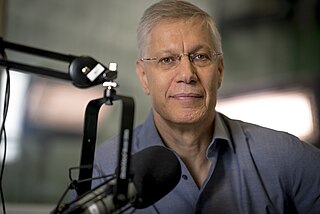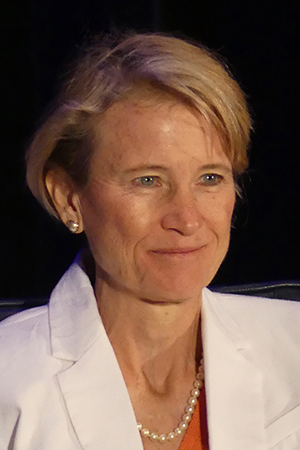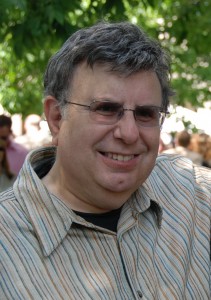
Alice O'Connor, better known by her pen name Ayn Rand, was a Russian-born American writer and public philosopher. She is known for her fiction and for developing a philosophical system she named Objectivism. Born and educated in Russia, she moved to the United States in 1926. After two early novels that were initially unsuccessful and two Broadway plays, she achieved fame with her 1943 novel, The Fountainhead. In 1957, Rand published her best-selling work, the novel Atlas Shrugged. Afterward, until her death in 1982, she turned to non-fiction to promote her philosophy, publishing her own periodicals and releasing several collections of essays.
In ethical philosophy, ethical egoism is the normative position that moral agents ought to act in their own self-interest. It differs from psychological egoism, which claims that people can only act in their self-interest. Ethical egoism also differs from rational egoism, which holds that it is rational to act in one's self-interest. Ethical egoism holds, therefore, that actions whose consequences will benefit the doer are ethical.
Objectivism is a philosophical system developed by Russian-American writer and philosopher Ayn Rand. She described it as "the concept of man as a heroic being, with his own happiness as the moral purpose of his life, with productive achievement as his noblest activity, and reason as his only absolute".

Leonard Sylvan Peikoff is a Canadian American philosopher. He is an Objectivist and was a close associate of Ayn Rand, who designated him heir to her estate. He is a former professor of philosophy and host of a nationally syndicated radio talk show. He co-founded the Ayn Rand Institute (ARI) in 1985 and is the author of several books on philosophy.
This is a bibliography for Ayn Rand and Objectivism. Objectivism is a philosophical system initially developed in the 20th century by Rand.
David Christopher Kelley is an American philosopher. He is a professed Objectivist, though his position that Objectivism can be revised and influenced by other schools of thought has prompted disagreements with other Objectivists. Kelley is also an author of several books on philosophy and the founder of The Atlas Society, an institution he established in 1990 after permanently dissociating with Leonard Peikoff and the Ayn Rand Institute.

The Ayn Rand Institute: The Center for the Advancement of Objectivism, commonly known as the Ayn Rand Institute (ARI), is a 501(c)(3) nonprofit think tank in Santa Ana, California, that promotes Objectivism, the philosophy developed by Ayn Rand. The organization was established in 1985, three years after Rand's death, by businessman Ed Snider and Leonard Peikoff, Rand's legal heir.

Harry Binswanger is an American professor and author. He is an Objectivist and a board member of the Ayn Rand Institute. He was an associate of Ayn Rand, working with her on The Ayn Rand Lexicon and helping her edit the second edition of Rand's Introduction to Objectivist Epistemology. He is the author of How We Know: Epistemology on an Objectivist Foundation (2014).
The Objectivist movement is a movement of individuals who seek to study and advance Objectivism, the philosophy expounded by novelist-philosopher Ayn Rand. The movement began informally in the 1950s and consisted of students who were brought together by their mutual interest in Rand's novel, The Fountainhead. The group, ironically named "the Collective" due to their actual advocacy of individualism, in part consisted of Leonard Peikoff, Nathaniel Branden, Barbara Branden, Alan Greenspan, and Allan Blumenthal. Nathaniel Branden, a young Canadian student who had been greatly inspired by The Fountainhead, became a close confidant and encouraged Rand to expand her philosophy into a formal movement. From this informal beginning in Rand's living room, the movement expanded into a collection of think tanks, academic organizations, and periodicals.
Ayn Rand's philosophy of Objectivism has been, and continues to be, a major influence on the right-libertarian movement, particularly libertarianism in the United States. Many right-libertarians justify their political views using aspects of Objectivism.

Yaron Brook is an Israeli-American entrepreneur, writer, and activist. He is an Objectivist and the current chairman of the board at the Ayn Rand Institute, where he was executive director from 2000 to 2017. He is also the co-founder of BHZ Capital Management LP.

John A. Allison IV is an American businessman and the former CEO and president of the Cato Institute in Washington, D.C. Allison held a number of leadership positions in BB&T Corp. from 1987 until 2010 when he retired. He now serves as a director at Moelis & Company.
The Randian hero is a ubiquitous figure in the fiction of 20th-century novelist and philosopher Ayn Rand, most famously in the figures of The Fountainhead's Howard Roark and Atlas Shrugged's John Galt. Rand's self-declared purpose in writing fiction was to project an "ideal man"—a man who perseveres to achieve his values, and only his values.

The Virtue of Selfishness: A New Concept of Egoism is a 1964 collection of essays by the philosopher Ayn Rand and the writer Nathaniel Branden. Most of the essays originally appeared in The Objectivist Newsletter. The book covers ethical issues from the perspective of Rand's Objectivist philosophy. Some of its themes include the identification and validation of egoism as a rational code of ethics, the destructiveness of altruism, and the nature of a proper government.

Tara A. Smith is an American philosopher. She is a professor of philosophy, the BB&T Chair for the Study of Objectivism, and the Anthem Foundation Fellow for the Study of Objectivism at the University of Texas at Austin.

Allan Stanley Gotthelf was an American philosopher. He was a scholar of the philosophies of both Aristotle and Ayn Rand.

Atlas Shrugged is a 1957 novel by Ayn Rand. It is her longest novel, the fourth and final one published during her lifetime, and the one she considered her magnum opus in the realm of fiction writing. She described the theme of Atlas Shrugged as "the role of man's mind in existence" and it includes elements of science fiction, mystery and romance. The book explores a number of philosophical themes from which Rand would subsequently develop Objectivism, including reason, property rights, individualism, libertarianism and capitalism, and depicts what Rand saw as the failures of governmental coercion. Of Rand's works of fiction, it contains Rand's most extensive statement of her philosophical system.

Duncan Scott is a film and television writer, director, and producer. Scott was one of the screenwriters of Atlas Shrugged: Part II and Atlas Shrugged: Part III. Early in his career, he became involved in the restoration of the 1942 film We the Living, a project that he continued to be involved in over the next several decades. Scott also directed and produced for television, winning several Emmy and Telly Awards, as well as being nominated for a Peabody Award.

Elan Y. Journo (born January 1976) is an Israeli writer, specializing in American foreign policy. He is an Objectivist and a fellow at the Ayn Rand Institute and its Director of Policy Research.
Amy Lynn Peikoff is an American writer, blogger, and a professor of philosophy and law. Peikoff is the Chief Policy Officer of social media platform Parler.













